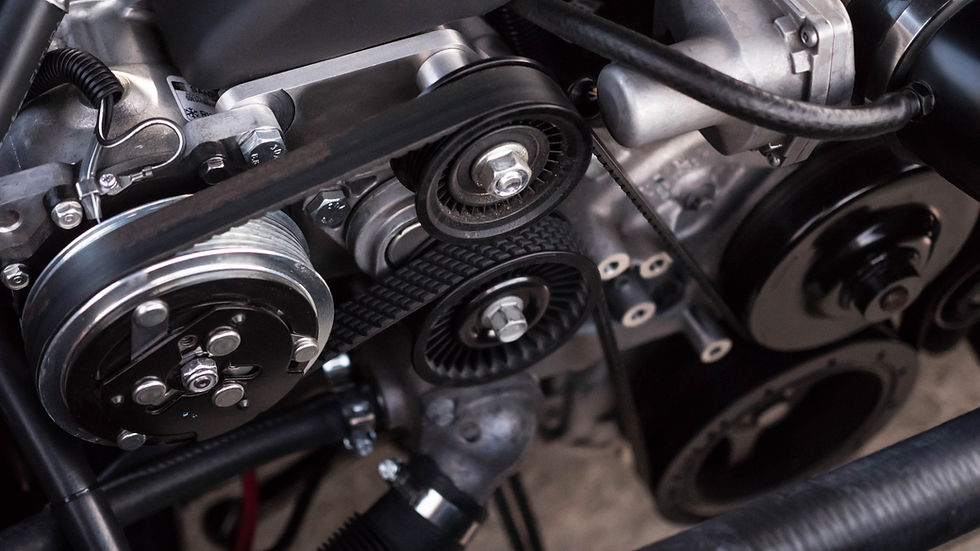Types of Power Transmission Drives
- PiRho Supplies
- May 25, 2021
- 2 min read
The need for energy is increasing with time. North American power transmission market has increased at a whooping rate. Industries use rotational motion produced by turbines and motors to do their required tasks. The industrial power transmission market uses basic transmission products like belts, chains and gears.
In our blog we will discuss their advantages and disadvantages over each other.
Chain Drives:

Chain drives as the name suggest uses series of chain set linked together to transfer power from one point to another with the help of sprocket. There is no problem of slipping in case of chain drives. These drives can transmit large amount of torque even in confined spaces. Such drives are best suited where the center distance is up to 3 meters.
Advantages of Chain Drives:
No slip or creep
Angular velocity remains constant
High-velocity ratio
Low maintenance cost
Chain drives can work under wet conditions and have high transmission efficiency of 98%.
Disadvantages of Chain Drives:
Higher installation cost as compare to belt drive.
Require regular lubrication
Noisy and can cause vibrations.
Lower load capacity as compared to gear drives.
Gear Drive

Gears are the most used technology when power transmission is considered. The mechanism of gears are simple it uses teeth on gear wheel to mesh with other gear teeth and transmit power from one teeth to another. This drive is best for transmission over a short distance.
Advantages of Gear Drive:
Non-slip drives.
Large and constant velocity ratio
Strong and allow higher loading
Transmit large power
High transmission efficiency
Disadvantages of Gear Drive:
Not ideal for high velocities and requires regular lubrication.
Installation cost is high.
Increases weight of the machine.
No flexibility
Not suitable for large distance
Belt Drive:

The most common drives used to transmit motion. There are various types of belts available in the market like flat belts, V-belts, timing belt etc. They are cheapest method of power transmission.
Advantages of Belt Drive:
Simple to use and cost efficient.
Belt drives do not require parallel shaft.
Low maintenance cost.
Cheapest option for large distance.
No noise and vibration.
Disadvantages of Belt Drive:
Not compact
Has limiting speed
Short life span.
Leads to stretching, slipping, and wearing of belt
Varying velocity ratio because of belt slip
PiRho Supplies is an Industrial Part Supplier that ships industrial products to Europe, Middle East, Australia and Asia. Need products like belts, chains or gears than come visit us at www.pirhosupplies.com. Or just drop your RFQ and we will contact you to get you the best deal possible.
Comments